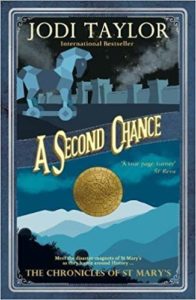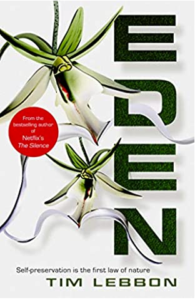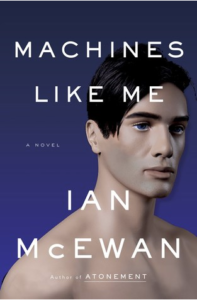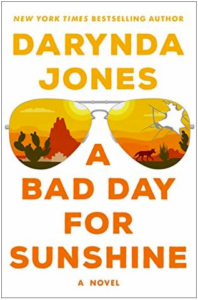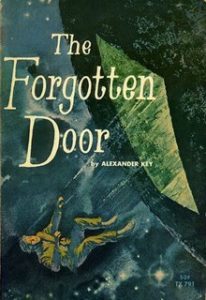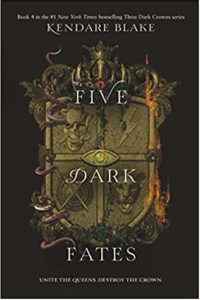Oooh, a novel set between the end of the series and the start of the movie! First, tho I’m a big fan of the entire Firefly ‘verse, I must admit that my grasp on the details is a little shaky, so I was seriously impressed by James Lovegrove’s commitment to calling back to details from the series actual. It really grounds the whole book in the canon, and makes it feel that much more “real,” as much as can be said of a fictional universe anyway.
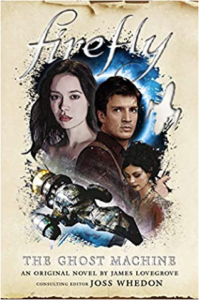 Second, there’s a reason Titan Books proclaims that this novel was written in consultation with Joss Whedon. I didn’t feel like it was super necessary with the first two books in the series but it’s definitely something readers would wonder about otherwise here, so it’s super neat that any speculation is headed off at the pass.
Second, there’s a reason Titan Books proclaims that this novel was written in consultation with Joss Whedon. I didn’t feel like it was super necessary with the first two books in the series but it’s definitely something readers would wonder about otherwise here, so it’s super neat that any speculation is headed off at the pass.
So Firefly: The Ghost Machine begins with the crew stopping at the backwater planet of Canterbury to pick up cargo for Badger. Trouble is, once Captain Mal Reynolds finds out that their cargo is actually an experimental mystery box that “fell off a truck” from a nearby Blue Sun testing facility, he puts two and two together and decides that this job is way too hot for the Serenity to handle. He politely declines, gunfire ensues, and he and Zoe head back to the ship to break the news to the crew that they’re leaving the planet empty-handed. Only Jayne has other ideas, and sneaks the box on-board with a view to getting his own personal payday from Badger.
Joke’s on him, however, as the box contains a so-called Ghost Machine that starts to mess with everyone’s heads, lulling them into waking dreams of their deepest desires. Well, everyone except River, because her head is impervious given all the messing about that’s already been done to it. As the rest of the crew succumbs, leaving their ship to spin out of control, River needs to dig deep into her addled psyche in order to free her friends and save the day.
Given the timeline, obviously, everyone will survive, so the real draw here isn’t the suspense of seeing our crew in harm’s way but in seeing what makes each and every one of them tick — and then seeing how their deep-seated fears begin to warp their own fantasies. For Mal, unsurprisingly, it’s living a life of happy luxury with Inara and their children. Perhaps more surprisingly, Zoe imagines a universe where the Browncoats won and she’s free to be a bounty hunter tracking down Alliance war criminals. It was actually really refreshing to see most of the men dream of romance and family whereas the women longed for independence and professional aptitude. Which isn’t to say that there wasn’t any overlap, just that Mr Lovegrove writes very convincingly of the motivations and fears of our crew as we know them, and doesn’t fall back on any tired shtick to do it.
I could absolutely envision this book as an episode or arc of the series, tho there were definitely bits that were much gorier than you’d ever see on-screen. I also loved how Mr Lovegrove captured everyone’s courage and pluck, without overlooking their flaws. This was another great installment in the Firefly series that makes me miss the TV show while simultaneously satisfying my desire for more from the ‘Verse. Excellent, as always!


